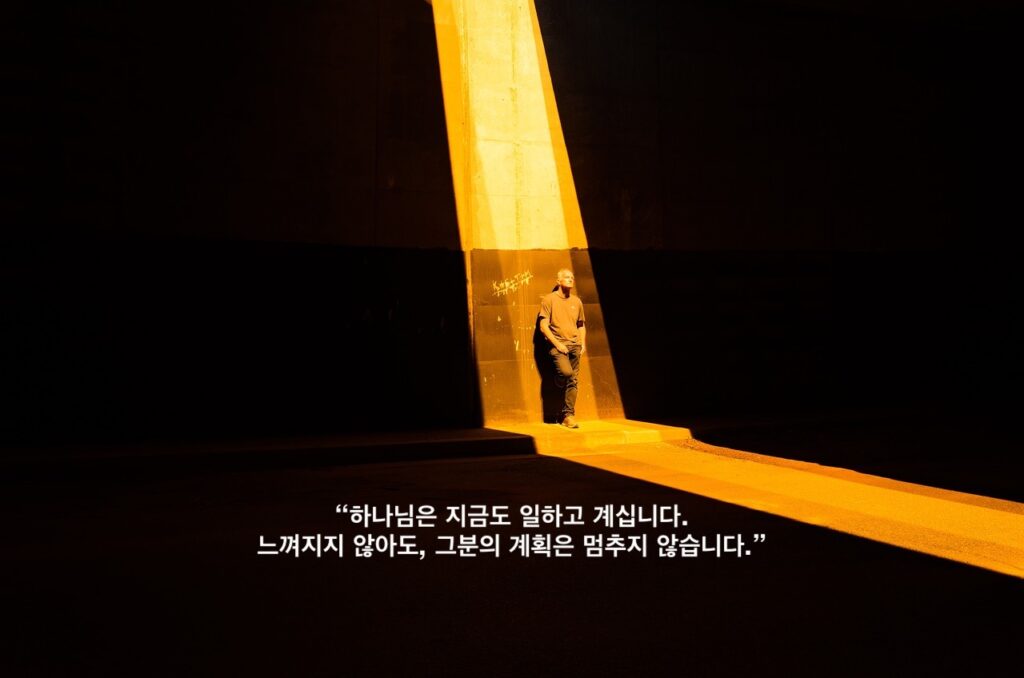When Forgiveness Feels Impossible: Confronting the Spiritual Weight of Letting Go
“Forgive.”
We’ve heard this countless times. We know that Jesus commanded us to love our enemies and to forgive not just seven times, but seventy-seven times. Yet, when we stand before someone who has truly wounded us, our hearts often fail to move as our heads instruct. The pain lingers deep and long, while our desire to forgive repeatedly crashes against a wall. So we confess, “I want to forgive. But it’s really hard.”
In the life of faith, forgiveness is more than a virtuous act. It is a path toward resembling the character of God, a way to embody His grace in our own lives. Yet this path cannot be walked by willpower alone. Pain is rarely silent, and the memory of wounds stirs within us again and again. Even when our minds choose forgiveness, our hearts still rehearse the hurt. For believers, forgiveness is always a struggle between spiritual truth and emotional reality.
Wounds inflicted by those closest to us are the hardest to bear. Betrayal from a loved one, a trusted friend, or within the church community doesn’t just sting—it shakes our identity and faith. These wounds prompt deep questions: “Lord, must I embrace even someone like this?” “Why did You allow such a person into my life?”
What was God’s intent in commanding forgiveness?
Jesus’ words in Matthew 6 are startling: “If you forgive others their trespasses, your heavenly Father will also forgive you.” At first glance, it seems forgiveness is a condition for being forgiven. But the core of His message isn’t a transaction. God desires that we live within the framework of His grace, where forgiveness is not just an obligation, but a natural outcome of being forgiven. It’s the lifestyle of those who belong to the kingdom.
God didn’t forgive us because we were worthy, but because His love chose to. Even when we failed repeatedly, turned away, and wounded others, He still embraced us. If we are truly anchored in that love, then it must also flow through us to others. Forgiveness becomes the cycle of that divine love.
Does that mean those who struggle to forgive have received less grace? No. Struggling to forgive often means the wound is deep. This isn’t a mark of weak faith—it’s an honest sign of unhealed pain. God does not demand forced forgiveness. He honors even our wrestling with the idea of forgiveness as a sacred step toward healing.
Forgiveness is not a single act—it is a journey
You don’t forgive someone in a day. Some wounds remain tender for years. That’s why Scripture repeatedly emphasizes forgiveness—“seventy times seven” implies a daily, intentional, faith-driven choice.
The first step is honesty: admitting before God, “Lord, I can’t forgive this person yet.” This is not defeat but the beginning of real restoration. God meets us in our honesty and begins healing from there.
True forgiveness does not excuse the offender or deny the wrongdoing. Rather, it releases the offense into God’s hands. It surrenders our right to retaliation and allows divine justice to take its place. In doing so, forgiveness liberates us. As long as we hold resentment, the offender continues to hold influence over our hearts. But when we forgive, we break that power and recover our peace before God.
Forgiveness is hard—especially when the offender shows no remorse, continues to live comfortably, or even boasts about their actions. In those moments, forgiveness can feel like an unfair burden on the one already hurt. But the Bible still says: “Be kind and compassionate to one another, forgiving each other, just as in Christ God forgave you” (Ephesians 4:32).
God isn’t simply asking us to be nice. He’s calling us to live by a different principle—one rooted in the character of Jesus Himself. On the cross, Jesus prayed, “Father, forgive them, for they do not know what they are doing” (Luke 23:34). Forgiveness for those who had not repented. That prayer wasn’t based on fairness—it was grounded in divine mercy. And it still challenges us today: “Are you living within that grace?”
We often assume forgiveness benefits the other person. But in God’s eyes, forgiveness is primarily for us. Unforgiveness binds us to the pain; it clouds our worship, our joy, and our relationships. Forgiving releases us—not from memory, but from the hold that memory has over us.
This freedom is not manufactured by sheer effort. Emotions lag behind decisions, and old wounds don’t heal quickly. That’s why forgiveness must begin not with feelings, but with faith. “God, I choose to forgive this person today. My heart is not ready, but receive this decision as my offering.” This is the first act of grace-led forgiveness.
Forgiveness is entrusting our rights to God
We resist forgiving because we feel wronged. Why should the victim suffer again by having to let go? But the gospel reminds us—we, too, were forgiven not because we were innocent, but because God is merciful. The cross is where justice and mercy met. Just as God didn’t abandon justice, we too can trust Him to judge rightly.
Romans 12:19 says, “Do not take revenge… but leave room for God’s wrath.” Our task is not vengeance, but surrender—letting God be the judge and guarding our hearts from bitterness. God sees every injustice, and He will not leave any wrong unaddressed. That assurance enables us to release the offense.
Forgiveness is never “done”—it is always unfolding
“I’m not ready to forgive.” That’s not failure—it’s an honest prayer. Real faith says, “Lord, today help me remember Your grace more than my pain.” This daily prayer softens the hardened soil of our hearts, loosening the knots of pain. And one day, we find we can say that person’s name without flinching. That we can meet them without resentment. Then we realize: forgiveness is something God finished in us.
Faith is letting God do what we cannot. Forgiveness is not about pretending to feel love or forgetting the hurt. It’s about deciding that pain will no longer define us. That the shadow of that person will not dim our worship. That we are free to stand again before God, whole.
Forgiveness, in the end, is not about them. It is about being honest before God. You don’t have to love them overnight. You don’t even have to forget. But you can say: “God, I will not let this wound rule me anymore.” That’s how grace frees us.
Maeil Scripture Journal | Faith Column




